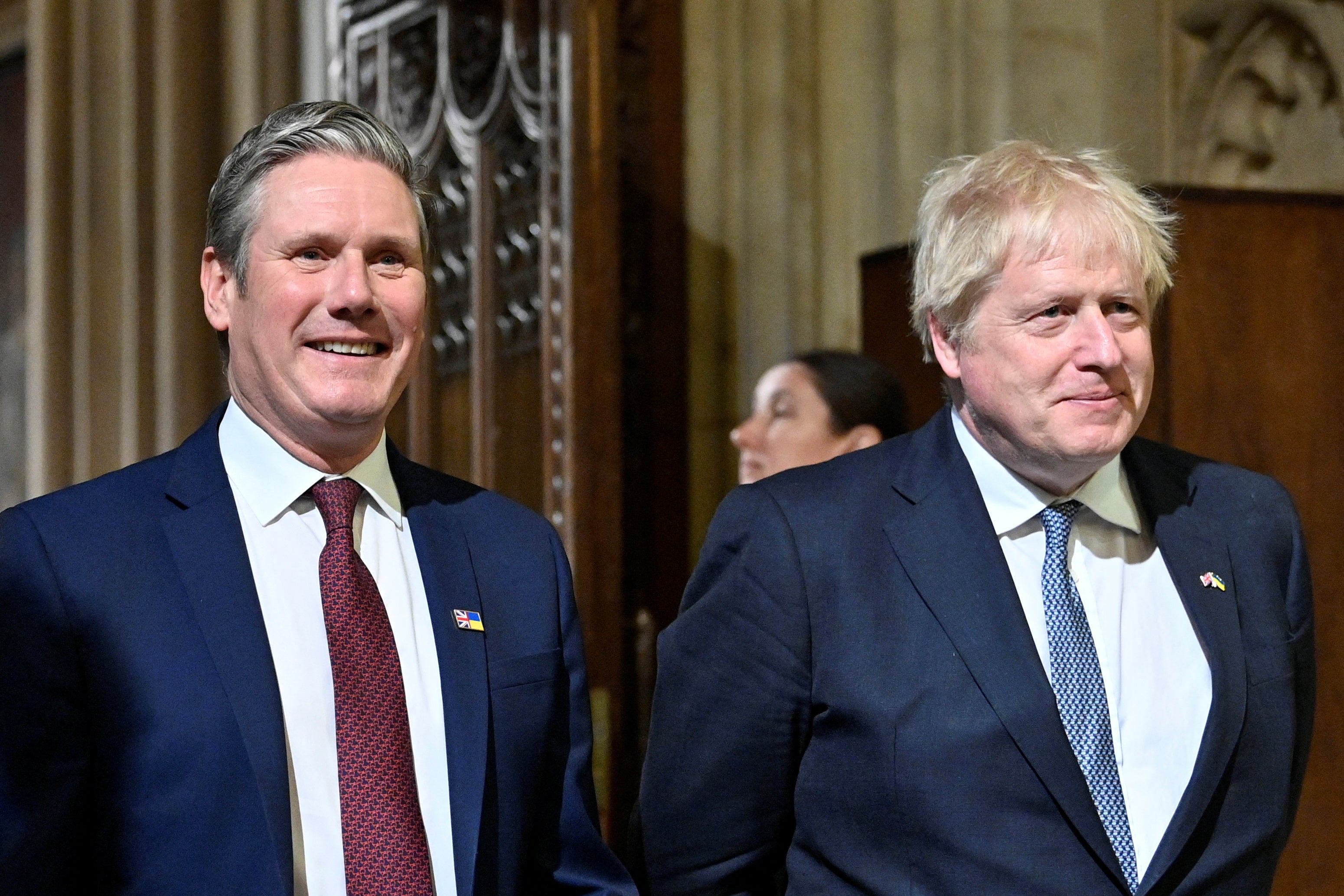Labour’s use of parliamentary tactics shows that it does indeed ‘have a plan’ – in contrast to Boris Johnson
The debate and votes on the Queen’s Speech have provided the main opposition party with fresh opportunities, and they have been seized with the kind of vigour not seen for years, writes Sean O'Grady


For those looking for a change in government, or even just a more competitive political contest, the revival of the Labour Party in parliament has been a remarkable and welcome development.
The debate and votes on the Queen’s Speech have provided the main opposition party with fresh opportunities, and they have been seized with the kind of vigour not seen for years. On successive days, Labour is deliberately tabling amendments to the government’s programme in favour of a windfall tax on energy companies, and then asking for an emergency Budget.
Neither has much chance of success, but both will attract the sympathy of some on the Conservative benches, from all sections of that party, who are frustrated with the government’s clumsy and tone-deaf response to the cost of living crisis.
However, it betokens more than an elevated instinct for mischief. It shows the sort of sound strategic and tactical sense not seen from Labour in more than a decade, and arguably since the glory days of Tony Blair. Strategically, it shows that the Labour Party does indeed “have a plan”, contrary to the increasingly implausible claims from the prime minister that it doesn’t.
What’s more, it is a plan addressing the central political concern of the moment, and the issue dominating both the media and household budgets. It isn’t about reform of the Lords or proportional representation, or even Partygate, but something that could scarcely be more vital to people.
Tactically, such parliamentary moves successfully drive a wedge into Conservative divisions and make the already difficult task of party management – in a notoriously factional atmosphere – still more hazardous. Rich Tory MPs and millionaire cabinet ministers coming out with well-meaning but ridiculous “top tips” for low-income families only highlights the lack of a convincing government plan to alleviate the pain of inflation.
The opposition has even helped foment tensions between the chancellor and the business secretary, and between the chancellor and the prime minister. Given a free hand, Boris Johnson would probably cheerfully vote for the Labour amendments. Ill discipline in the governing party becomes twice as corrosive if those in the opposition find ways to amplify it and contrast it with their own unity: voters traditionally dislike divided parties.
There have been other notable successes, inside and outside parliament. Last autumn, the opposition easily outsmarted Jacob Rees-Mogg’s planned attempt to bypass parliamentary standards and rescue Owen Paterson from censure. The resulting furore did nothing for the government’s already sinking reputation for competence, let alone integrity.
Outside the Commons, when the Tories and their media allies launched a whirlwind attack on Keir Starmer that became known as “Beergate”, it was more or less neutered by his promise to quit if he received a fine. Of course, Starmer had demanded that Johnson should quit just for being investigated, let alone fined, and it is possible that the Labour leader didn’t stick to the rules, but politically the issue has probably been killed off – even turned to Starmer’s advantage, proving that he and his party really are “different”.
Spurious as that may be, the contrast between Starmer and Johnson has been deepened and cast in sharper relief. The questions for Rishi Sunak over non-doms were initiated by scoops in The Independent, but the shadow chancellor made the very most of them and issued a promise to abolish non-dom status.
The Labour Party’s front bench, again for the first time in more than a decade, is stronger than that of the Tories. Yvette Cooper eviscerates Priti Patel without breaking a sweat. Jon Ashworth uses facts and the price of bread, rather than breathless indignation, to illuminate the plight of the poor. Wes Streeting is a man who seemingly doesn’t know how to lose an argument. Angela Rayner has survived a misogynist campaign that seemed solely designed to humiliate and unnerve her.
Alongside a reborn Ed Miliband, Lisa Nandy and Thangam Debbonaire have also helped the party regain some credibility as an alternative government. The presence of Patel, Nadine Dorries, Rees-Mogg and Oliver Dowden in positions of responsibility is an embarrassment. There’s plenty of talent on the Tory benches, but fortunately for Labour, Johnson refuses to hold a government clearout and promote the next generation.
None of this means that Labour will form the next government, or even form the largest party in parliament. The Conservatives are unpopular, just as they were almost continuously behind in the polls during the 1950s and the 1980s – but crucially, in those days, they were ahead of Labour on polling day. At least this time the Labour Party is putting up more of a professional performance, not least in parliament.






Join our commenting forum
Join thought-provoking conversations, follow other Independent readers and see their replies
Comments